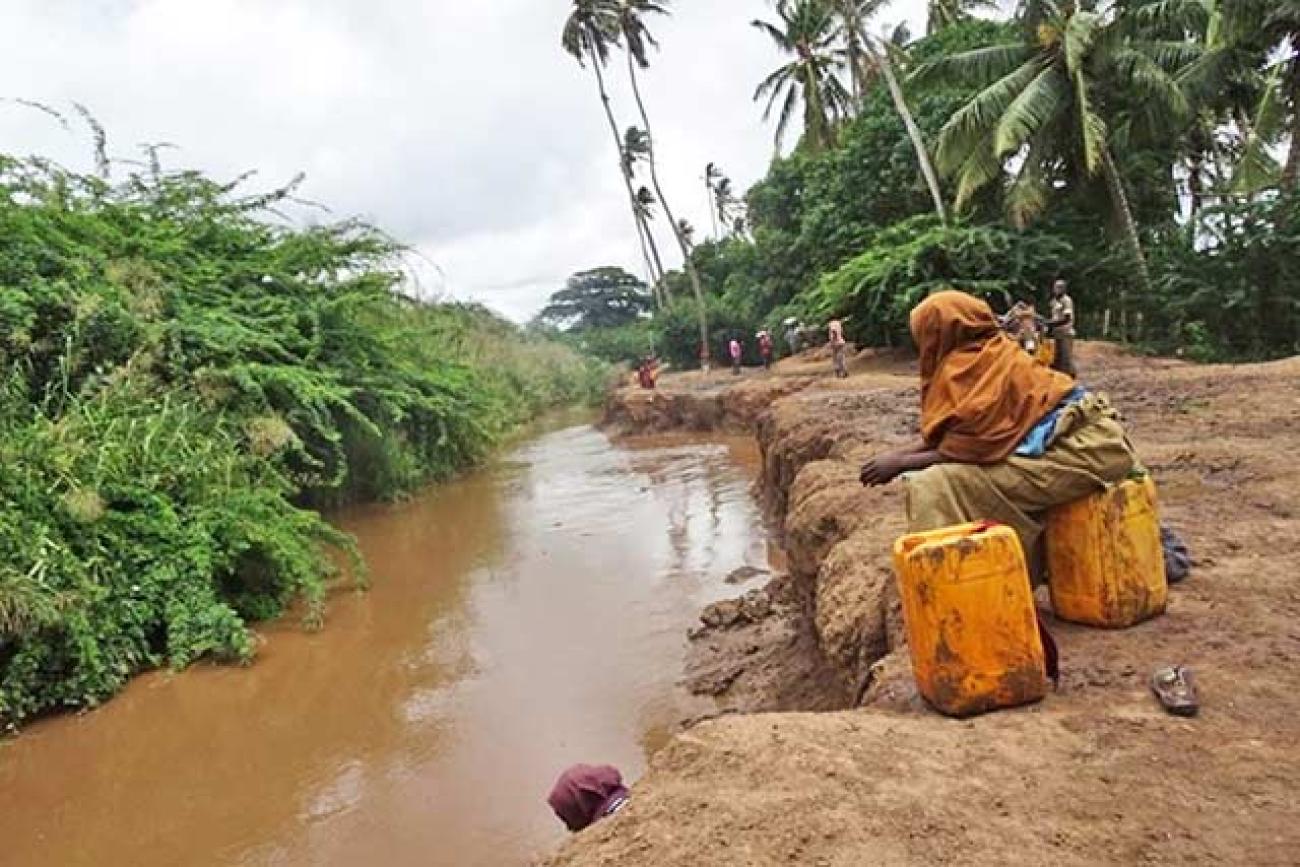Reliable and sustainable water access to farmers in Somalia’s riverine areas is essential

We met with Reddy Laxman to talk about the Pro-resilience Action (ProAct) project.
We met with Reddy Laxman to talk about the Pro-resilience Action (ProAct) project. The project has just finalized its inception phase activities, primarily focused on a large canal survey and an irrigation assessment in the Lower Shabelle region. The survey of 246.8 km of canals (of which 45.3 km are along five main canals, and 201.5 km secondary canals) has been recently validated by both the Federal Ministry of Agriculture and Irrigation and the State Ministry of Agriculture and Irrigation in the South West State of Somalia.
How is ProAct addressing the root causes of food insecurity in Lower Shabelle?
The European Union ProAct programme is a very timely contribution to Somalia. We have just seen the devastating consequences of the floods along the Shabelle and Juba River that have displaced almost 400 000 people across the country. The project indeed tackles the key underlying causes of vulnerability in Lower Shabelle. In doing so, through ProAct we aim to substantially increase the resilience of vulnerable peoples’ livelihoods to food crises, mostly related to the climate emergency.
Why did you initate the project by conducting an extensive canal survey?
The project centres on water: primarily water access, water management and finally its productive use. Before doing anything else, however, we needed to assess the current situation in this river fed agricultural area. As we have noticed, the lack of functioning irrigation infrastructure or networks further compounds the root causes of food insecurity and malnutrition in the country. We’re now aiming to rehabilitate approximately 246.8 km of irrigation canals along the Shabelle River to serve 30 300 ha of farmland. Reliable and sustainable water access to Somali farmers engaged in riverine agriculture is essential.
In its second phase, the ProAct project will also organize producer groups of up to 500 members. What is the aim of this activity?
The aim of this component is to ensure farmers are positioned for success by organizing them into productive and profitable groups, thus ensuring holistic, area-based production plans are developed. The project will support the formation or strengthening of around 15 groups (of up to 500 members), geared to jointly plan, aggregate and market their production. This approach will help farmers reap the benefits of the restored irrigation systems thanks to the economies of scale they will achieve.
Another component of ProAct are the water management committees. What are these committees?
Water management committees are critical for the sustainable use of rehabilitated irrigation infrastructure (i.e. main canals, secondary canals, culverts, sluice gates etc). Through the project, we intend to strengthen already existing water managemet committees in the project command area to effectively deliver their services to farmers. The project will train the committee members on canal operation and maintenance, water use and management including irrigation techniques and public asset management.
All in all, could we say that through this EU-funded project FAO is contributing to strengthening the institutional capacity of Somalia’s agriculture sector?
I would say absolutely yes. Institutional capacity will be strengthened to provide services to farmers and water management committees. Technical assistance will be provided to Ministry officials (both at federal and state levels) to support and create a conducive environment for irrigation committees to function effectively. The project aims to support the development of the Shabelle River Basin Authority, which will ultimately govern water resources across the Shabelle River. The investment in government capacity building and leadership is fundamental to sustain and build on results beyond the life of ProAct.
How is ProAct interacting with other riverine agriculture projects in Somalia?
ProAct is indeed fairly similar to other ongoing EU-funded projects that are being implemented in southern Somalia States. We are trying to make the most of synergies with these projects; namely Outreach II, also funded by the European Union, and the Sweden-funded Building Resilience in Middle Shabelle (BRiMS). These projects both aim to build resilience by strengthening agricultural value chains, restoring irrigation infrastructure, and reinforcing the management capacities of local, state and federal Government institutions in order to empower Somalia’s agricultural sector. We even have a common Steering Project Committee! Let me also highlight that the prospective success of this project would not be possible without FAO’s on-the-ground partners – who play an essential implementation role in those areas with highly restricted access, as well as the different federal and state Ministries of Agriculture and Irrigation.





